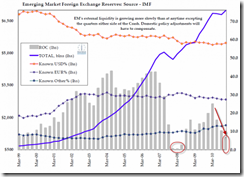Spot the mistakes of this article.
From Sunstar.com.ph (bold emphasis mine)
MALACANANG appealed for understanding from the public following another confusion in the announcement of class suspension in Metro Manila and nearby provinces that have experiencing heavy rains since Monday night.
Deputy presidential spokesperson Abigail Valte said since there is no storm signal, the responsibility of suspending classes is left to the discretion of the local chief executives.
“We will be asking for a little bit of your patience because it is a new devolved system and our local government units will need to also get used to that system,” she said.
To remind the local officials with their task, Malacañang again posted on the Official Gazette Executive Order 66, which authorizes municipal mayors, as respective chairpersons of respective Local Disaster Risk Reduction and Management Councils (LDRRMC), to cancel classes and work of government offices during inclement weather.
“We would like to take this opportunity to remind them that the responsibility to suspend classes in times of inclement weather when there is (sic) no storm signals belongs now to the local government officials,” Valte said.
She added it is stated in the EO that suspension of morning classes must be announced by 4:30 a.m. so as not to inconvenience students, school staff and parents.
Classes from pre-school to high school levels in Metro Manila were cancelled Tuesday morning due to continuous rains caused by a low pressure area last seen at 40 kilometers west of the capital.
Several parents, however, complained about the late announcement of class suspension as their children were forced to go to school early in the morning despite the flooding.
Local Government Secretary Robredo, in a radio interview, admitted the need to improve the local government units’ announcement of class suspension.
Robredo said mayors, village chiefs, and school principals should coordinate in making the necessary announcement regarding cancellation of classes during heavy rains since they are the ones who see the situation on the ground.
Ok this news is an ex-post observation of the recent flood. Hindsight is 20/20. It’s easy to finger point based on the past.
Yet the problem is tomorrow. The problem is accurately anticipating the weather and its potential impact in both quality and quantity dimensions to affected areas and the social policy response.
The next problem is that families expect schools to make the necessary announcements. Unfortunately schools have NO EXPERTISE in forecasting weather. So it will be judgment call for schools.
The same problem plagues the local government units, hardly any of them have the ADEQUATE knowledge of the impact of nature’s challenges. So it will be judgment call for LGUs.
This leads us back to the national government through the government weather bureau PAG-ASA. Again unfortunately, outside conventional storms, it seems that PAG-ASA hardly can forecast accurately the nitty gritty of the weather changes. So it will be judgment call for the national government through PAG-ASA.
Even in conventional storms, PAG-ASA has hardly been successful in accurately predicting the exactitudes of nature's disturbances.
All these reveal that the fundamental problem is the failure of centralization in weather forecasting. But media's and the political approach has been to finger point.
Two more important things to drive at:
The first is the KNOWLEDGE problem.
The fact is that while there are instruments to help predict the changes in the weather, that knowledge is limited. This means that policy responses will ALWAYS be insufficient, no matter what they do.
The second point is that these has been all about the HOT POTATO problem—everyone seems to toss the responsibility to another party.
Everyone has been HARDWIRED to EXPECT that the government must and shall deliver us from environmental disruptions and disasters.
Yet no matter the horrible track record, we maintain this illusion of infallibility.
People cannot seem to accept that government are composed by people, and like everyone else, has limitations in the possession of knowledge.
In reality, people should NOT depend on government for making these calls.
Everyone should take the responsibility to assess and act upon the tradeoff of allowing you and your family members to go to school or work during inclement weathers.
There are many risks attendant to bad weather e.g. leptospirosis and other diseases, potential accidents (falling trees, open manhole, electrocution among the many). This should be done individually and depending on the circumstances of the environment one operates on.
Government will never know the details of each and everyone of our lives.
Of course there are institutional solutions to these, such as not only the privatization of PAG-ASA but importantly to de-politicize them or subject them to market competition.
People or social institutions, such as schools, can reward or punish private institutions for providing accuracy in weather forecasting through the profit and loss system. Under the government monopoly, sustained mistakes should be expected.
Weather derivatives can also be used as an insurance against tail events or weather based calamities. Institutions can now make their calls based on appropriate assessment of cost and benefits.
There are many REAL things the markets can do that may alleviate the current predicament. But under the current popular mindset, such is a state of vacuum so the problem becomes reiterative or self-reinforcing
Thus the biggest among all the fundamental flaws is the public’s mysticism of government.
As Professor Don Boudreaux wrote,
Too many people, including otherwise very smart people, believe in secular magic. They believe that words written on paper by people, each of whom receive a majority of votes on certain days of the year of adult citizens living in certain geographic areas, and who utter ritualistic pronouncements under marble domes in buildings conventionally called “capitols,” are somehow endowed with greater understanding of society’s complexities and with superhuman capacities to care about the welfare of strangers. These priests preach devotion, dedication, and sacrifice to the One True State (your own government), even while each recognizes that legitimate disputes about the details of the dogma divide various cliques of the secular clergy. When they speak and act in their official roles, they expect – usually correctly – that the laity pay their words special heed as if these words have extraordinary power.
We will never improve on our approach to solve the weather predicament, until we come to realize of the existence of other alternatives…the markets.









